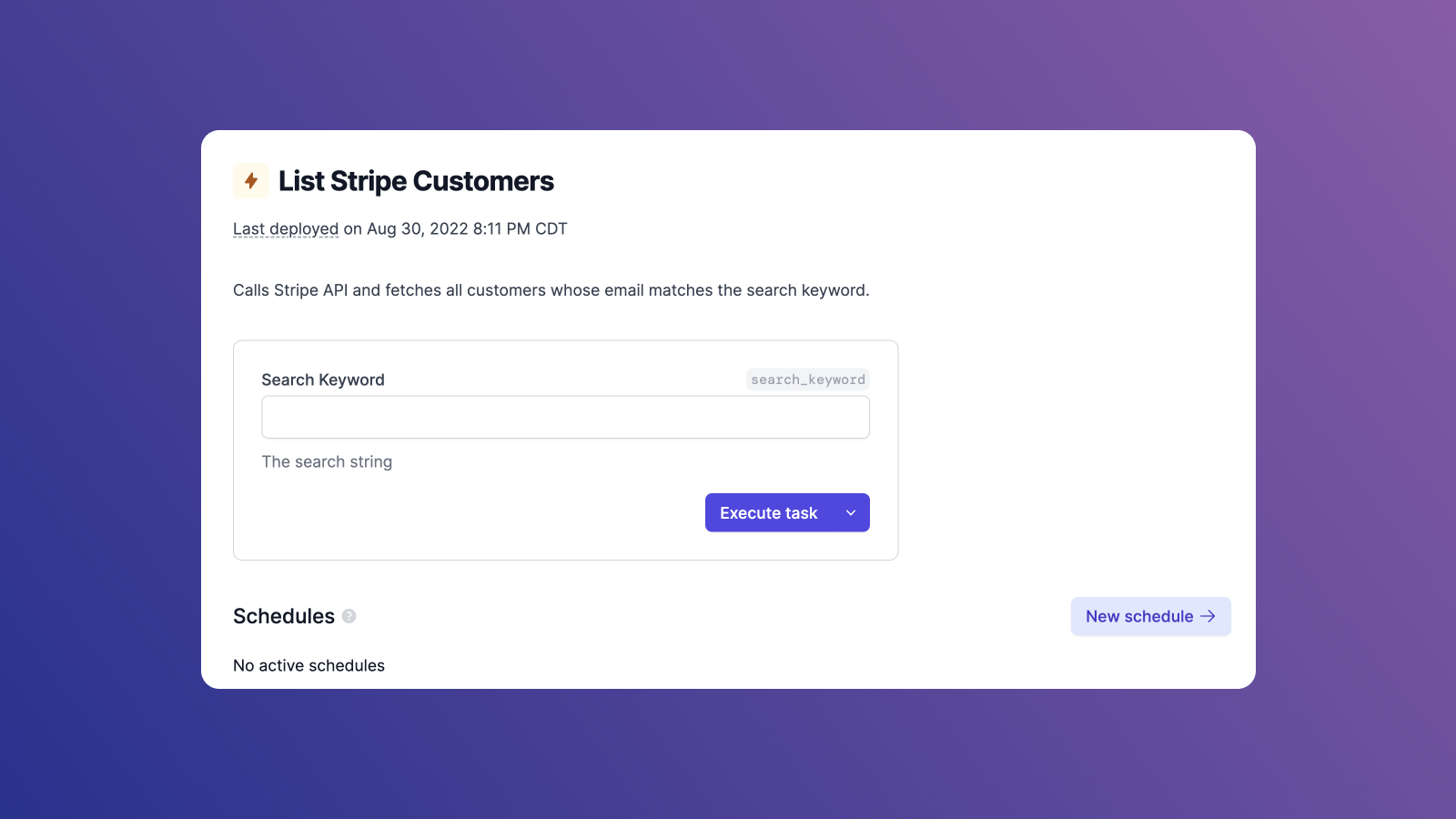Workflow and runbook automation platforms are powerful tools that eliminate recurring and manual processes that consume many resources. Many organizations invest heavily in this process to remove technical bottlenecks and save their engineers significant amounts of time. One platform that organizations use is Rundeck. Rundeck offers automation capabilities to streamline recurring internal processes.
Rundeck is an open-source, task-scheduling, and runbook automation system that automates routine processes across development and production environments. It offers automated capabilities for incident responses, service requests, and security compliance. These features reduce response time, labor dependencies, and frequency of errors while increasing self-service automation. The platform also offers audit logs and granular-based access control settings to reduce the risk of codebase interference.
Although Rundeck is a good platform for organizations to automate processes, it has certain limitations. It's difficult to install with many nuances that come attached with typo and error warnings, difficult to maintain, and its enterprise-only full version can be expensive for organizations.
There are several Rundeck alternatives on the market that provide robust automation features, are easy to use, and are less costly. Let’s look at the top five alternatives to Rundeck based on popularity and performance:
- Airplane
- Azure Automation
- IBM Runbook Automation
- Octopus Deploy Runbooks
- Scribe
Airplane
Airplane is a developer-first, internal tool platform that allows engineers to build single business operations, multi-step functions, and UIs within minutes using code. Airplane Tasks represent functions that anyone on your team can use. These can be basic functions or long-running, multi-step operations using the workflow runtime. With Airplane, teams can easily develop apps to resolve daily challenges using a few lines of code. Airplane's scheduling feature makes it easy to automate tasks to run on a recurring basis using a few lines of code or the web UI. This feature does not require complex implementation procedures like Rundeck, giving developers an easy-to-use environment to automate their operations efficiently.
The platform also offers approval flows that regulate access to sensitive operations and audit logs that provide complete visibility into task execution history. In addition to tasks, Airplane also offers Views. Views allow users to build internal UIs using pre-built components and robust templates within minutes.
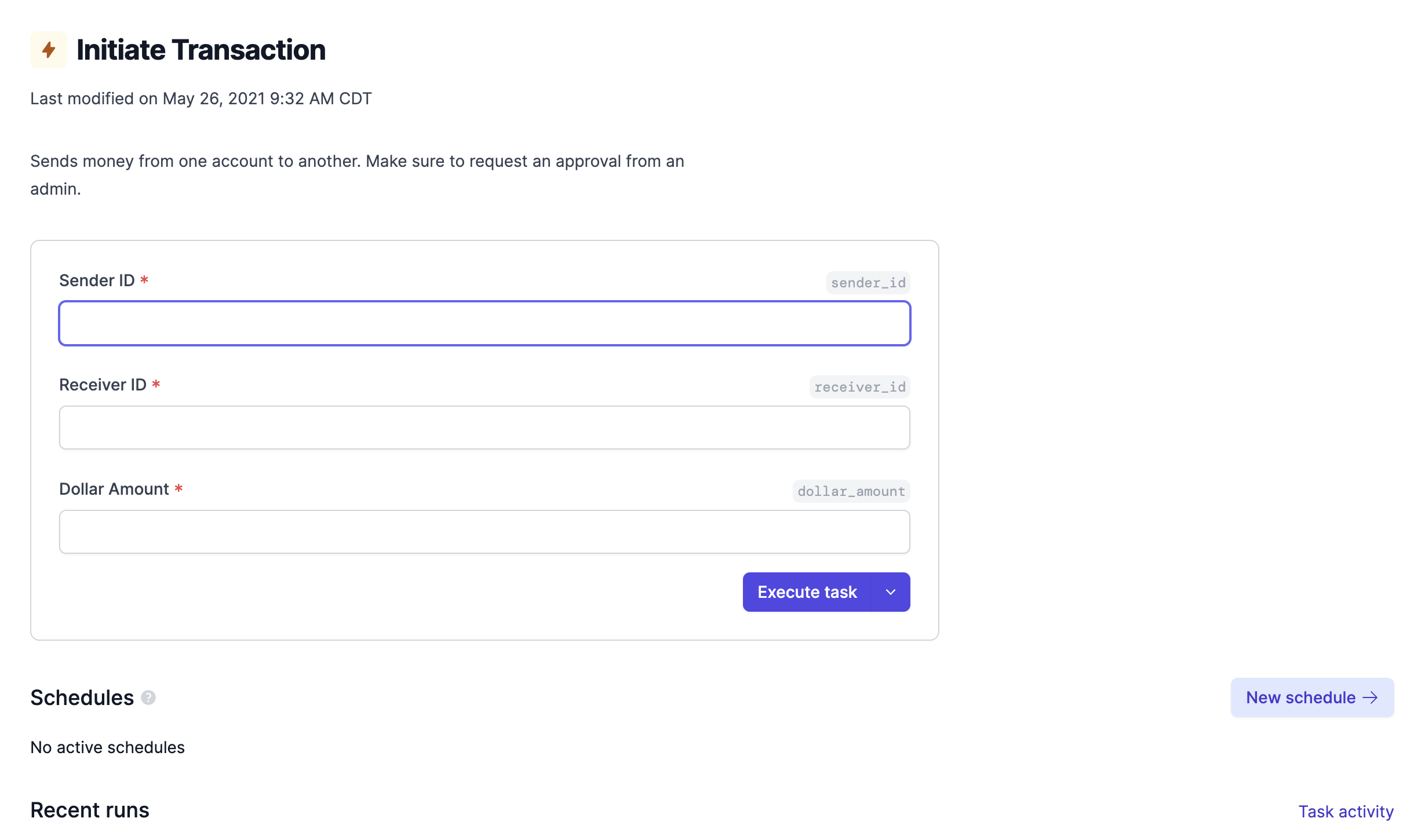
Setting up Airplane and getting started is easy through its free plan and strong defaults. Airplane also offers in-depth documentation and helpful guides to help users build their first task quickly and efficiently. You can also check out our blog for more content on workflow automation, such as choosing the right workflow builder, how to write automation scripts, 6+ cron alternatives, and more.
If you're looking for a code-first, easy-to-use, and highly customizable solution, then Airplane is a great fit for you.
Azure Automation
Azure Automation allows users to automate their operations and orchestrate actions across systems from inside the platform. Built on Azure PowerShell, Azure Automation gives users access to its rich features, such as runbook management, process automation, role-based access control, and more. Unlike some of the other Rundeck alternatives, Azure Automation supports on-premise, cloud, and hybrid workload automation. The platform also provides pre-built Python packages to help users get started.
The runbook automation feature allows users to create new runbooks using PowerShell Workflow syntax, or import existing ones to the platform. The process automation feature supports the integration of Azure services and other third-party systems and allows users to automate frequent, time-consuming tasks. Azure offers role-based access control for Azure accounts, runbooks, and jobs to regulate access to sensitive items. In addition to these automation features, Azure Automation also offers scheduling capabilities to run tasks at specified times.
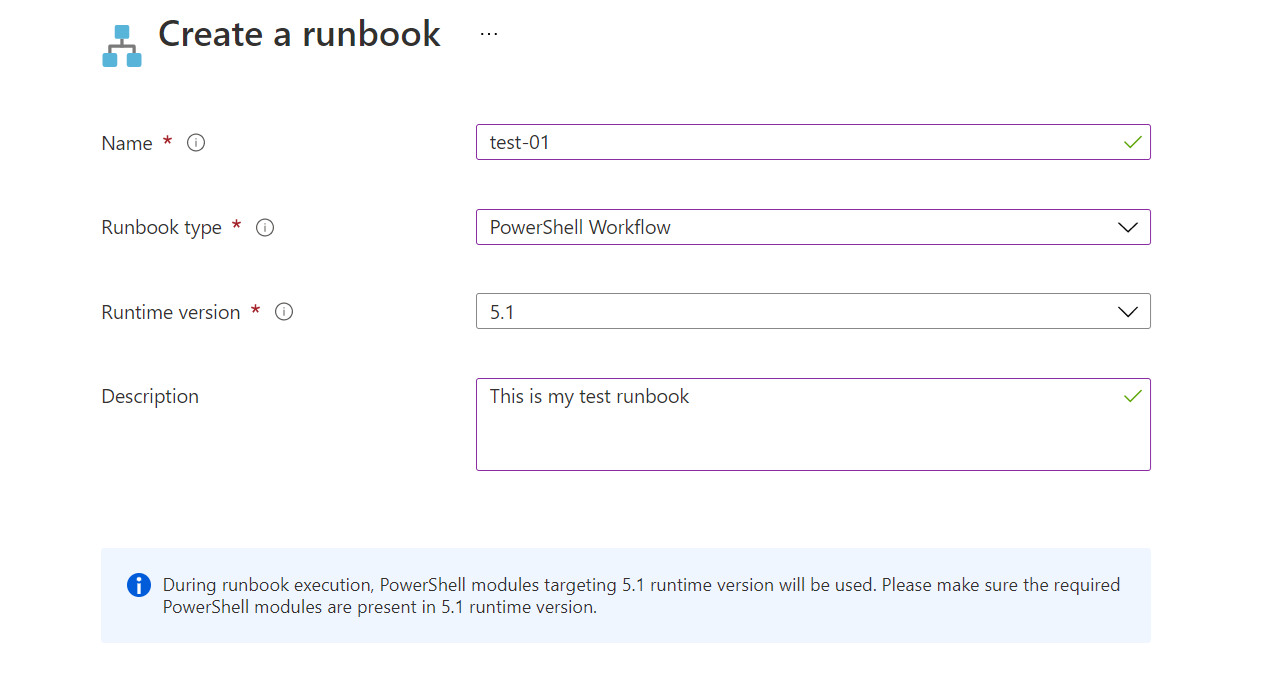
Azure Automation offers extensive documentation to help new users get started.
If you're looking for an automation solution that has pre-built Python packages and on-prem, cloud, and hybrid options, then Azure Automation is for you.
IBM Runbook Automation
IBM Runbook Automation is used to develop and execute runbooks that solve redundant operational problems. IBM Runbook Automation achieves this by automating all procedures that require human interaction to increase operational efficiency. The platform offers three types of runbooks - manual runbooks, which require the operator to run each step of the workflow; semi-automated runbooks, in which the operator can run an automated task on a target system; and fully automated runbooks, which run workflows without operator interaction.
With this Rundeck alternative, users record standard manual activities so that they are executed on a consistent basis, then use script-based tasks to replace the manual steps. The platform also supports script, HTTP, and Ansible automation, and permissions-setting capabilities to limit user access where needed.
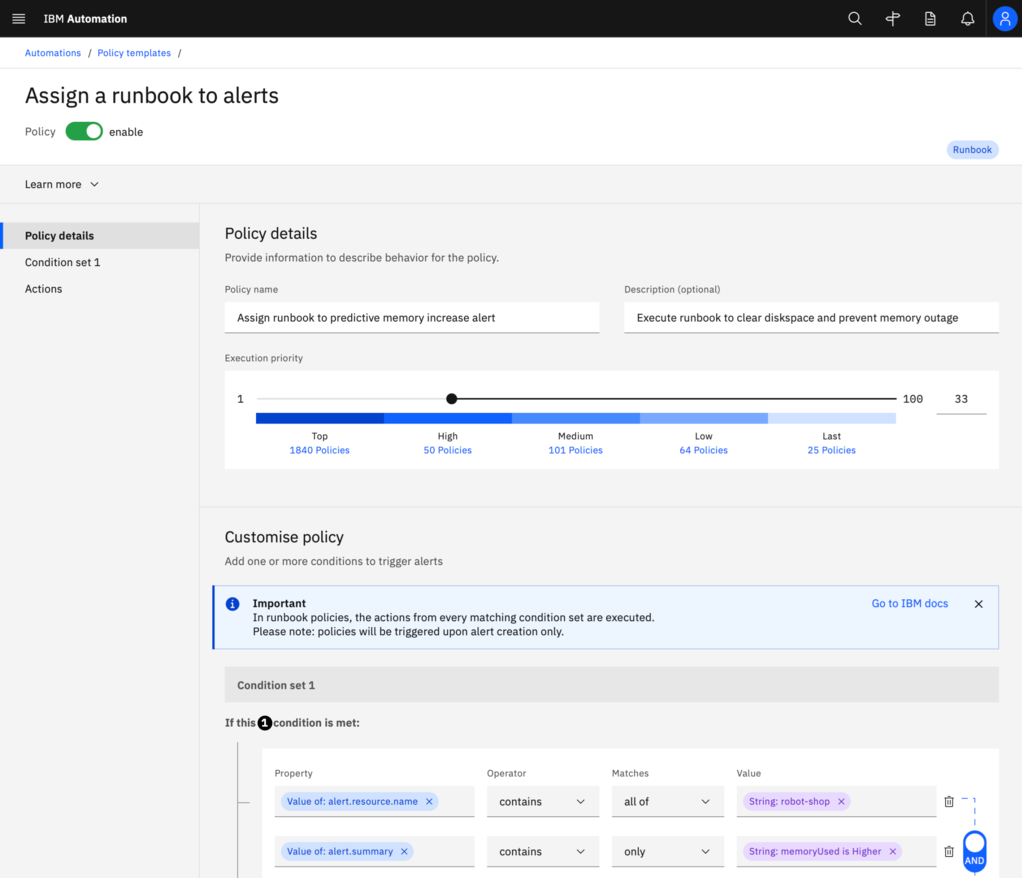
IBM Runbook Automation offers documentation on its website and an online knowledge center for getting started and using the platform.
If your organization currently uses IBM cloud and other related IBM services, then IBM Runbook Automation is easy to integrate and a great fit for you.
Octopus Deploy
Octopus Deploy makes it easy for users to automate deployments and runbooks from one platform. The Octopus Deploy Runbooks feature automates routine and emergency tasks to minimize downtime, simplify maintenance, and unlock self-service operations. The platform enables the integration of various tools and services that accelerate code delivery. This is because both Octopus Deploy Runbook and Deployment have shared resources (templates, scripts, and configuration settings). Maintaining the application is also more manageable with resource sharing.
Octopus Deploy also increases visibility into processes due to centralized team management, control, audit, scheduling, and execution of runbooks. Octopus doesn’t require additional permissions and local tooling when executing runbooks. Users who want to perform the ad-hoc functions can do so, provided they have the proper permissions.
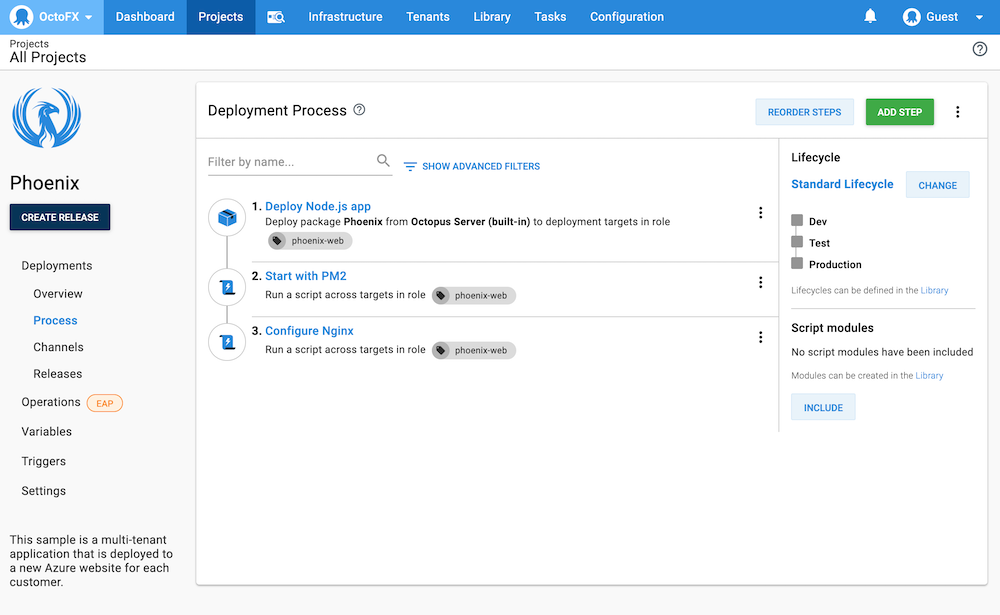
Getting started with Octopus Deploy is easy. You can sign up for an account and utilize the documentation to get started. The platform also offers an extensive community library to help users build and automate operations quickly.
If you are looking for an easy-to-use solution that supports over 500 integrations with various tools, then Octopus Deploy may be a good fit for you.
Scribe
Scribe is a process recording platform that auto-generates step-by-step guides. Like Rundeck, Scribe offers runbook automation capabilities that help teams automate manual processes and eliminate the need for engineers to do the heavy lifting. Users are able to build engaging runbooks rapidly through its SOP generator and share them with other team members. Scribe further increases the speed of process documentation by 15x and offers runbook distribution via a simple URL.
Unlike Rundeck, Scribe supports creating and documenting runbooks using runbook templates to speed up the documentation process. With the fail-proof runbook in place, you can start automating your environments to offload the manual and repetitive processes.
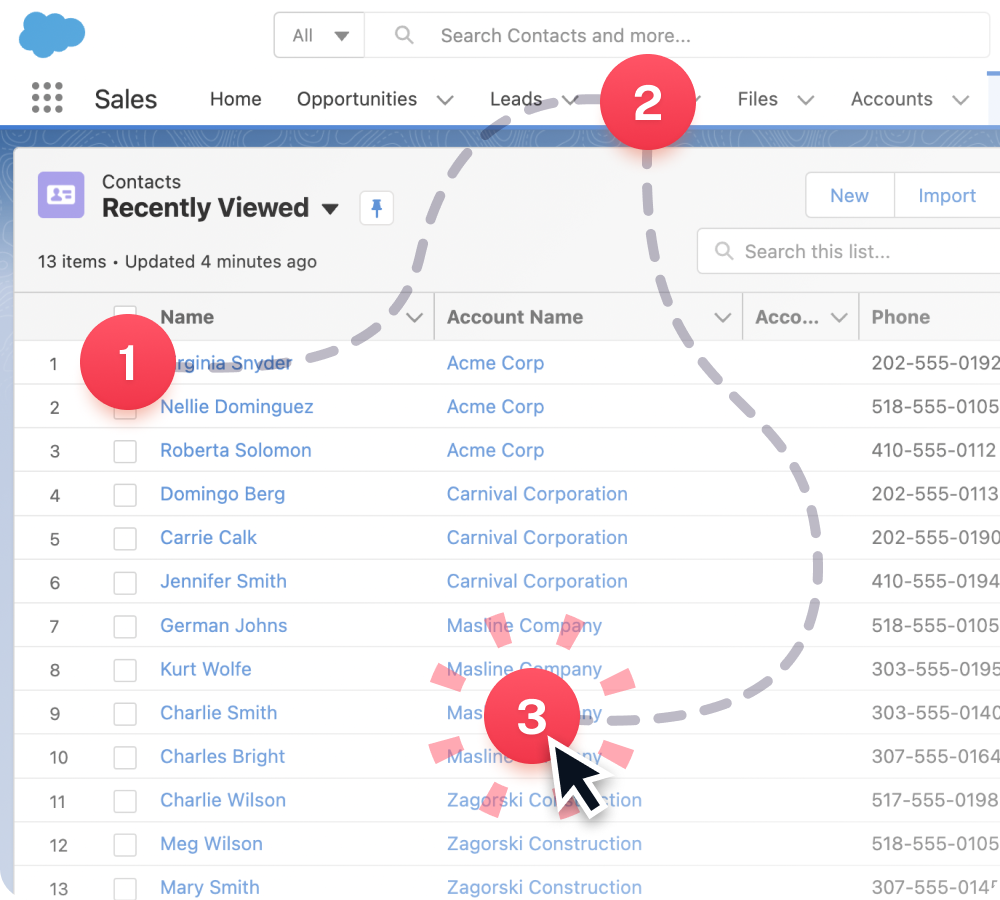
Scribe also offers process documentation to create accurate and actionable runbooks through its resource page.
If you're looking for a solution that allows you to quickly document and automate steps for workflow processes through a SOP generator, then Scribe is a good platform for you.
Comparison of Rundeck alternatives
With many automation platforms on the market, it can be difficult finding the best option. Let's quickly take a look at the comparisons between Rundeck and all its alternatives discussed in this article.
| When to use | Ease of setup | Pricing | |
| Airplane | If you're looking for a code-first, easy-to-use, and highly customizable solution. | Get started for free. Airplane is easy to set up and start building tasks within minutes using a few lines of code. The platform also offers strong defaults, such as approval flows, schedules, audit logs, and more. Airplane also provides extensive documentation and how-to guides to help users build tasks and views. | Offers free tier with $10/user/mo team plan and an enterprise option for companies with more advanced requirements. |
| Azure Automation | If you're looking for an automation solution that has pre-built Python packages and on-prem, cloud, and hybrid options. | Azure Automation is moderately easy to set up using several shared resources, such as modules gallery, Python packages, variables, and more. Azure Automation also has in-depth documentation and how-to guides to help users get started quickly and build tasks and runbooks. | Offers flexible, custom quote pricing model for organizations. |
| IBM Runbook Automation | If your organization currently uses IBM cloud and other related IBM services and you are looking for a platform that will integrate easily. | IBM Runbook Automation is somewhat easy to set up with several installation steps and validation required. Once set up, the platform is easy to use through the intuitive UI. IBM Runbook Automation offers limited documentation on its website and an online knowledge center for getting started and using the platform. | Offers custom pricing upon request. |
| Octopus Deploy | If you're looking for an easy-to-use solution that supports over 500 integrations with various tools. | You can get started for free. Setting up Octopus Deploy is easy through pre-built deployment templates and building tasks is simple by using its intuitive UI. Octopus Deploy provides robust documentation to get started. The platform also offers an extensive community library to help users solve their problems and answer any questions. | Offers two pricing categories: cloud and server. Cloud plans start at a $10 flat fee/mo rate while server plans start at a $0 rate. |
| Rundeck | If you're looking for an open-source platform to automate routine processes across development and production environments. | Rundeck is a bit complicated to set up. The installation process is manual and error-prone due to configuration nuances. Rundeck's free version also has limited features and limited support. Rundeck, however, offers extensive documentation and how-to guides to help users through any issues they may have. | Limited free tier and a custom enterprise tier for companies with more advanced requirements. |
| Scribe | If you're looking for a solution that allows you to quickly document and automate steps for workflow processes through a SOP generator. | Get started for free. Scribe is easy to use through its intelligent screen recording feature and intuitive UI. Scribe offers extensive process documentation to create accurate and actionable runbooks through its resource page. | Offers three tiers: basic free plan, pro plan for $23/user/mo, and enterprise plan for organizations with customized needs. |
There are several Rundeck alternatives on the market with easy-to-use, powerful automation features. An effective runbook and workflow automation tool, such as Airplane, is easy to set up and implement and eliminates engineering bottlenecks that organizations may face.
Airplane offers a code-first platform that allows engineers to build and automate powerful tasks and views that anyone in the organization can use in minutes. It even offers strong out-of-the-box capabilities, such as audit logs, approval flows, and permissions that maintain security and safety within an organization. Check out our blog for more content on workflows and automation, such as choosing the right workflow builder, how to write automation scripts, 6+ cron alternatives, and more.
To test out Airplane and build your first task within minutes, sign up for a free account today or say hello at [email protected] 👋


